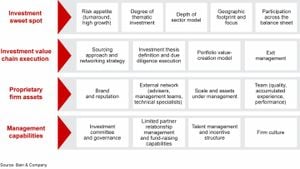Stephen Miller's return to the White House has stirred controversy and concern among civil rights advocates and marginalized communities across the United States. Appointed as the deputy chief of staff for policy by President-elect Donald Trump, Miller brings with him a storied history of polarizing ideologies and policies, primarily geared toward curtailing the rights of immigrants and LGBTQ+ individuals. His past actions and affiliations serve as cautionary tales about what might lie ahead as he reestablishes his influence within the current administration.
Miller's place within Trump’s circle is not new. He was heavily involved during Trump’s initial term, where he was credited with engineering some of the most divisive immigration policies, including the controversial Muslim travel ban and the zero-tolerance family separation policy at the U.S.-Mexico border. His hardline stances have drawn ire from advocates who view them as grounded not just in nativism but also rooted deeply within white nationalist ideology. The “America First” agenda, which Miller has staunchly supported, is perceived by many as thinly veiled racism and xenophobia.
This perception was cemented when leaked emails from 2019 revealed his regular consumption of output from white nationalist media. Such revelations, widely publicized, incited fierce backlash and calls for accountability, with critics arguing Miller's ideology inspires divisive and baseless narratives around immigration. Even members of his own family have openly disavowed his views; his uncle labeled Miller's policies hypocritical, seeing them as contradictory to their family’s history as immigrants.
After exiting the Trump administration, Miller founded America First Legal (AFL), through which he has continued his campaign against civil rights protections and LGBTQ+ rights. Under his leadership, AFL has spearheaded efforts to roll back various legal protections, aligning closely with far-right agendas. These include public attacks against civil rights laws and initiatives aiming to dismantle reproductive rights. The organization aims to be influential as Trump recruits allies to shape his second term agenda, referred to by supporters as Project 2025.
When it concerns Miller's track record on LGBTQ+ issues, his actions have consistently been aggressive and hostile. For example, AFL's campaigns against trans rights have been particularly notable, including attempts to litigate against protective policies at schools. One case involved legal action against Mesa Public Schools in Arizona, arguing the district’s trans-supportive measures infringed on parental rights—ignoring the potential threats to students' safety should their identities be forcibly disclosed.
His hostility toward LGBTQ+ rights doesn't stop at policy; it also includes public misinformation campaigns. Notably, during the 2022 election, AFL deployed ads claiming Democrats were recklessly imposing radical gender experiments on children. With messaging strategically aimed at minority populations, particularly Spanish-speaking communities, the misinformation served to stoke unjust fears around LGBTQ+ rights.
With Miller’s return to the White House and his appointment as deputy chief of staff for policy, many fear the reversal of hard-won rights for the LGBTQ+ community. Advocates warn of potential rollbacks on protections like those assuring gender-affirming healthcare, workplace rights, and even marriage equality. The broader societal ramifications could put LGBTQ+ youth at greater risk, especially as Miller’s influence could engineer federal policies against their identities.
The reintroduction of Miller is not merely another appointment within the federal government—it's viewed as indicative of the administration's priorities and the shifting climate for marginalized groups. The educational campaigns and advocacy efforts put forth by LGBTQ+ allies may soon shift to defensive modes of activism as they brace for what the Miller-influenced agenda could entail.
Looking at Miller's slate of expected changes, many predict his policies to favor exclusionary practices deeply rooted in conservative values, which could erase inclusive protections established over the past few years. LGBTQ+ advocates and civil rights defenders argue there’s now more urgency than ever for organized resistance. Miller's name has become synonymous with regressive policies, serving as both a rallying cry and a stark reminder of the battles still to be fought for marginalized communities.
Trump's decision to reinstate Miller alongside other controversial figures speaks volumes about his intended direction—one deeply at odds with the inclusive climate many have strived to create. For organizations focused on civil rights and LGBTQ+ advocacy, the retaking of even minor legislative gains could lead to increased hostility toward alternative identities.
For many, the return of Miller prompts existential questions about the future of civil liberties within the U.S. Hundreds of millions of dollars have been funneled toward advertisements targeting key demographics during this campaign season, raising concern over the normalization of attacks against marginalized individuals. Political analyses show how misinformation has seeped deep within local cultures, threatening to polarize communities along lines of identity and rights.
These most recent federal appointments mean individuals like Stephen Miller will likely reclaim significant sway over national policy-making. What's clear is this new iteration of the Trump administration could very well become synonymous with polarization, as the battle lines have once again been drawn.
Donald Trump’s administration, underpinned by such controversial figures, is poised to navigate turbulent waters. Advocacy groups, civil rights defenders, and many everyday citizens find themselves preparing to rally against policies they fear will undo decades of progress. With the stakes raised higher than ever, the response to Miller's return will likely define the narrative and political action for years to come.
Miller’s influence extends far beyond day-to-day policy decisions; it symbolizes the larger ideological battle facing the nation. For many, this moment signifies not only the redefinition of their rights but also the urgent call to action to defend against the forces seeking to dismantle hard-won freedoms. The political playground is set for conflict, and individuals on both sides brace themselves for what lies ahead, knowing the stakes have never been higher.



